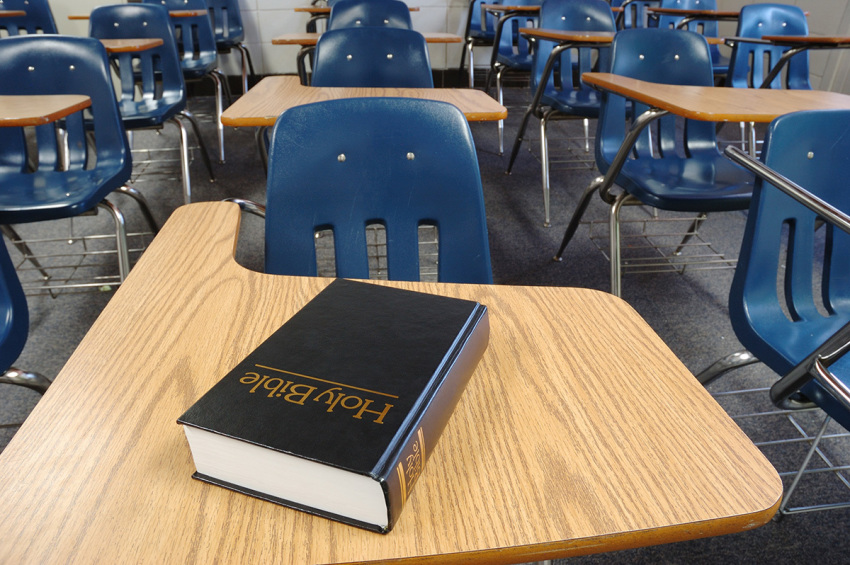Can students share the Bible with their classmates on 'Bring Your Bible To School Day'?
Focus on the Family offers guide to students' rights for annual event

Hundreds of thousands of students are expected to participate in the nationwide "Bring Your Bible to School Day" on Thursday, led by Focus on the Family, to get kids talking about Jesus.
Last year, more than 877,000 students took part, along with over 5,000 churches and over 50,000 schools represented, according to data from Focus on the Family.
True to its namesake, "Bring Your Bible to School Day" is an annual student-led event marked on the first Thursday of October that involves two simple steps: students taking their copy of the Word of God with them to school and sharing with others what the Scripture means to them.
Aimed at students from elementary to high school, everyone who participates is encouraged to share with their friends, perhaps by giving away an extra Bible to someone who doesn't have one or even setting up a Bible study with their friends.
While most parents may balk at the idea of their child leading a "religious activity" at a public school, FOTF published a guide to students' rights refuting some commonly held misconceptions.
"Talking about God or reading the Bible during free time is almost always okay," the guide states. "When students are told that they can't read the Bible at school or use the Bible in a homework assignment, the reason they're often given is that the school must maintain 'separation of church and state.'"
"But that's just not correct," the guide continues. "As long as you are acting voluntarily and not disturbing class, then most of the time you have constitutional rights to express a personal, faith-based viewpoint."
Students are also encouraged to pray and read the Bible in class "as long as these activities are done voluntarily, led by students, and not done in a way that interrupts school lessons."
The same goes for prayer. Considered "private personal speech," student prayers are allowed as long as they are voluntary, led by a student and not a member of the school faculty or staff, and aren't disruptive to instruction, according to the guide.
What about sharing the Gospel?
The student guide states, "In general, you can voluntarily express your personal and religious beliefs to their classmates through verbal or written expressions, as long as they follow their school's policies and do not engage in these activities during classroom or instruction time."
While school officials are within their rights to enforce "reasonable" limits on times and locations when it comes to students distributing materials of any kind, they cannot ban students from passing out religious materials "if they already allow students to distribute non-religious materials."
Click here for more information on "Bring Your Bible To School Day."



























